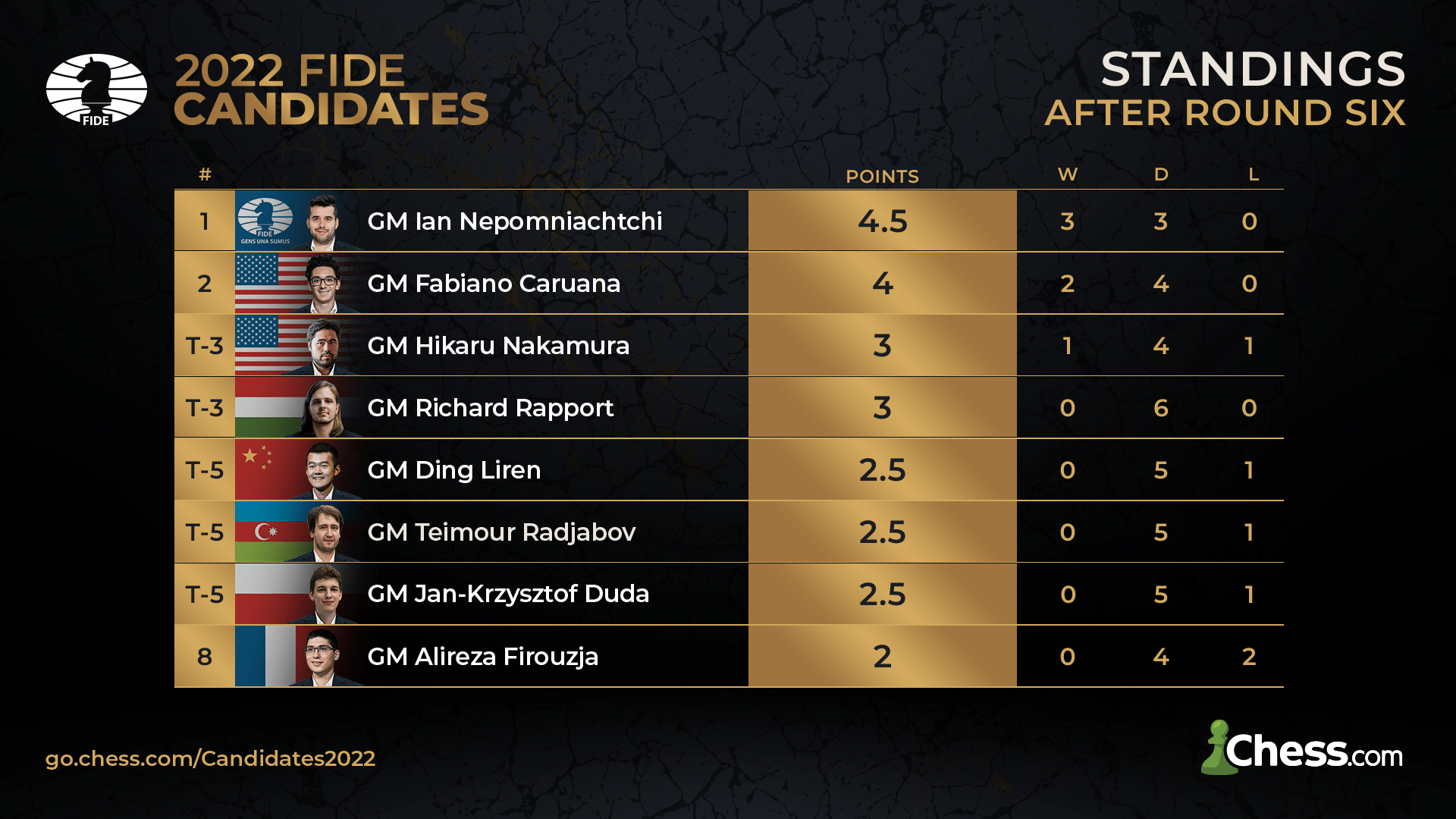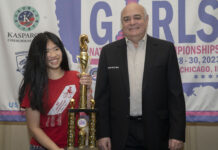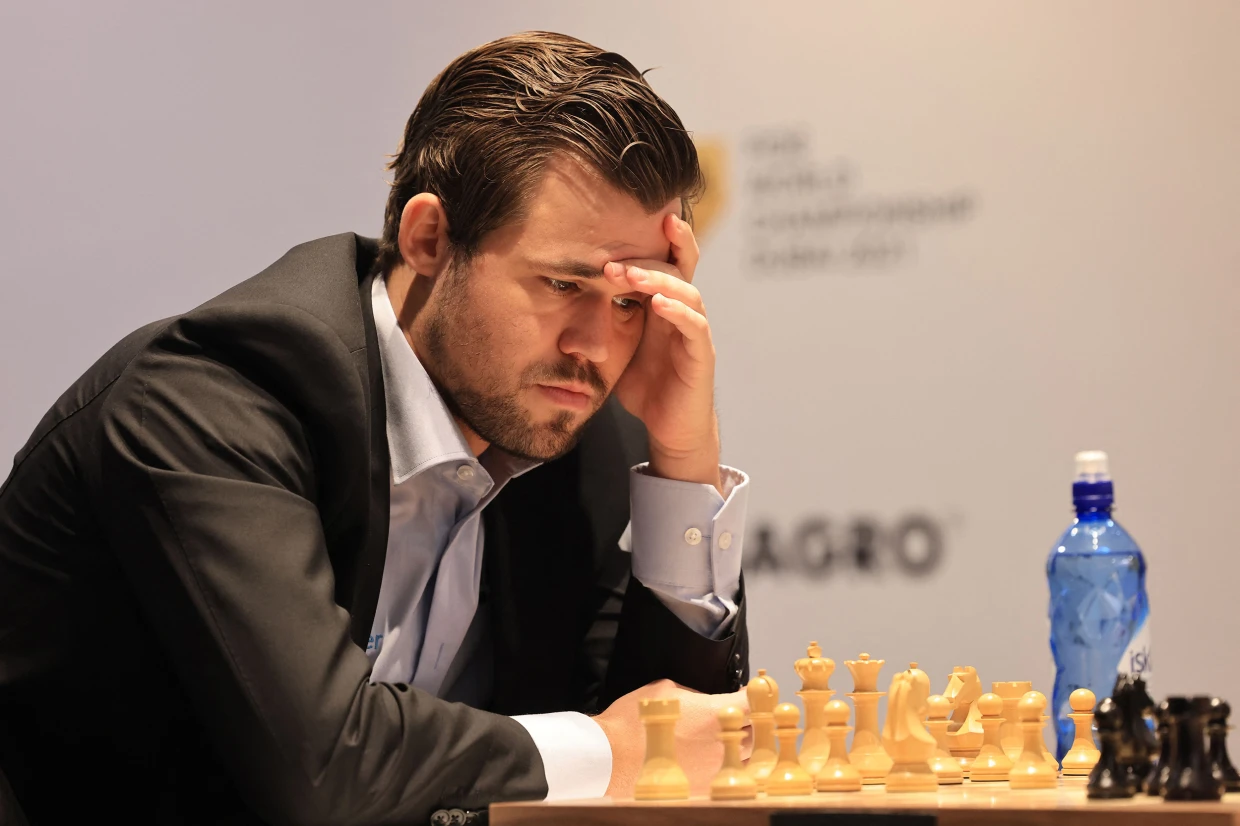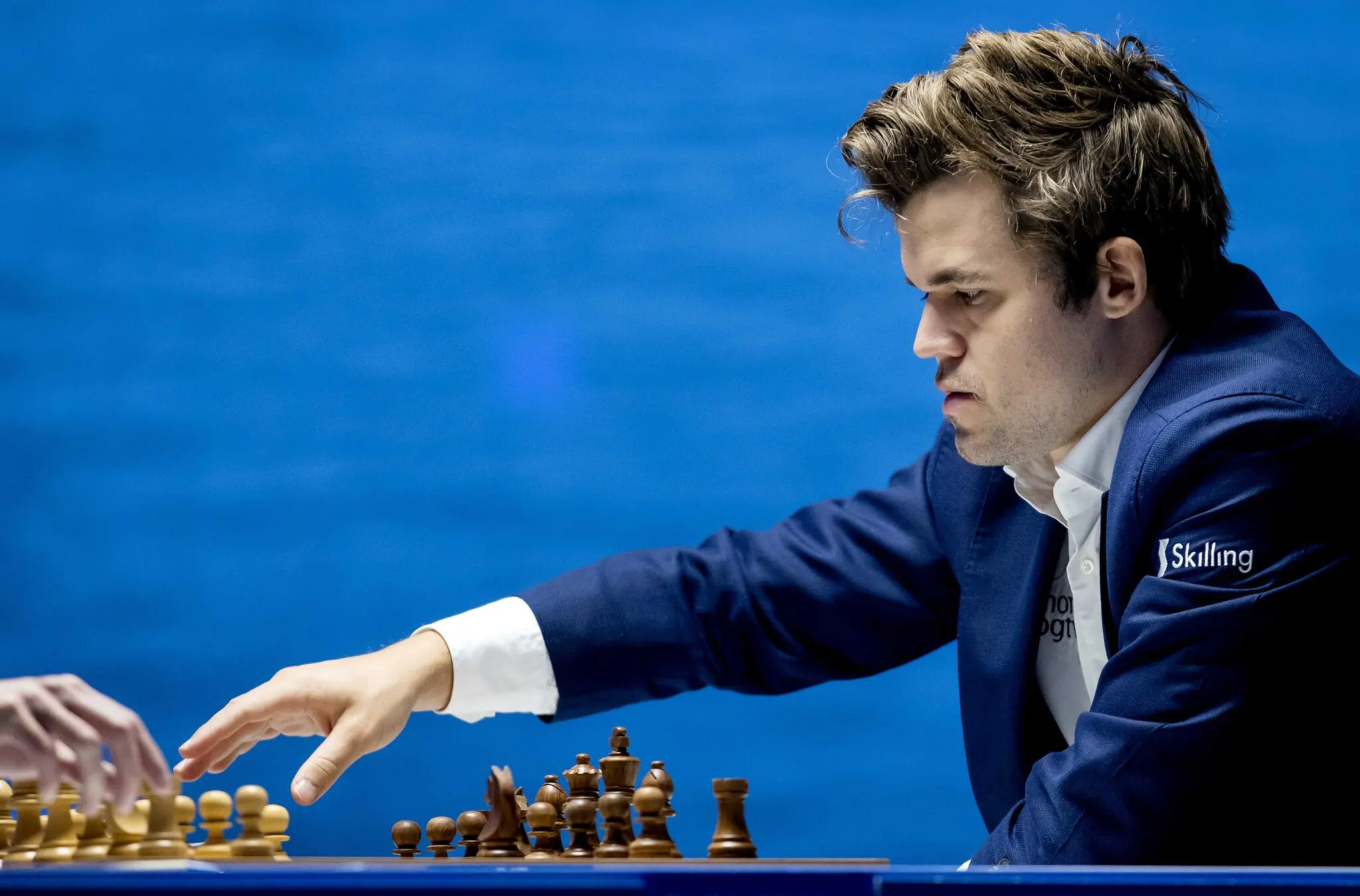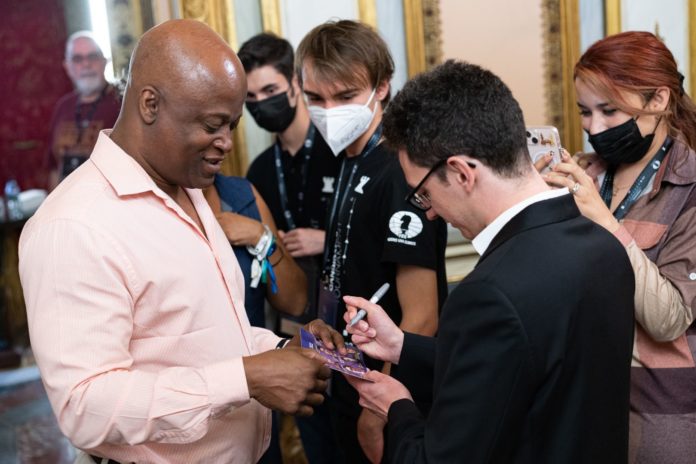GM Ian Nepomniachtchi won his third game in the 2022 Candidates Tournament but still leads by half a point as GM Fabiano Caruana also scored the full point on Thursday. While the tournament leader defeated GM Jan-Krzysztof Duda in a kingside attack, Caruana refuted a dubious exchange sacrifice from GM Alireza Firouzja.
After “arguably the most unbalanced day we’ve had in Madrid,” as IM Danny Rensch put it, the term two-horse race is already being used here and there. It might be a bit early for that, but right after the round, this author estimated the chances of either Nepomniachtchi or Caruana winning the tournament at about 70 percent. When GM Sam Shankland‘s analysis arrived, it turned out he was giving the exact same number.
Besides the tournament situation and standings and all (Firouzja in last place? Ufff!), this Thursday was also an absolutely fantastic day of chess in general. We had crazy tactics, sacrifices, king walks, perpetuals, missed wins… everything.
Radjabov-Rapport ½-½
The last time Teimour Radjabov won a classical game was on October 2, 2019, in the FIDE World Cup final against GM Ding Liren. Since then, he has a winless streak of 34 games, which should have come to an end today. Completely unaware that his opponent had made a losing mistake, the Azerbaijani GM did not play the killer move but forced a draw instead.
The game was exciting from the very start, as Radjabov had cooked up something against Rapport’s Taimanov Sicilian, which the Hungarian GM has now played in all three of his black games.
As it turned out, Rapport had done his homework. For 15 moves, the players followed a rapid game between GM Maxime Vachier-Lagrave and Nepomniachtchi from last year, when Radjabov uncorked the novelty 16.Bg6+.
The queens were traded a few moves later, but that didn’t mean the game was now in more quiet waters.
Rapport was ready for it as he quickly played the remarkably 16…Kd7, causing Radjabov to take his first big think: 27 minutes for 17.Bg5. That finally got Rapport thinking as well: 17 minutes on his reply, and the game really took off. By then, it was already one of those “don’t try this at home” games.
Rapport’s 25…Ng4 was a lovely move. It leaves the rook on b2 en prise, but taking it would be met by 26…Rxf2+ and 27…Rxb2. Black has enough compensation there, but according to the engine, not more than that.
It did look dangerous and so Radjabov went for another line which involved some complicated tactics as well, but as so often, the engine kept saying 0.00 and the resulting endgame was indeed roughly equal.
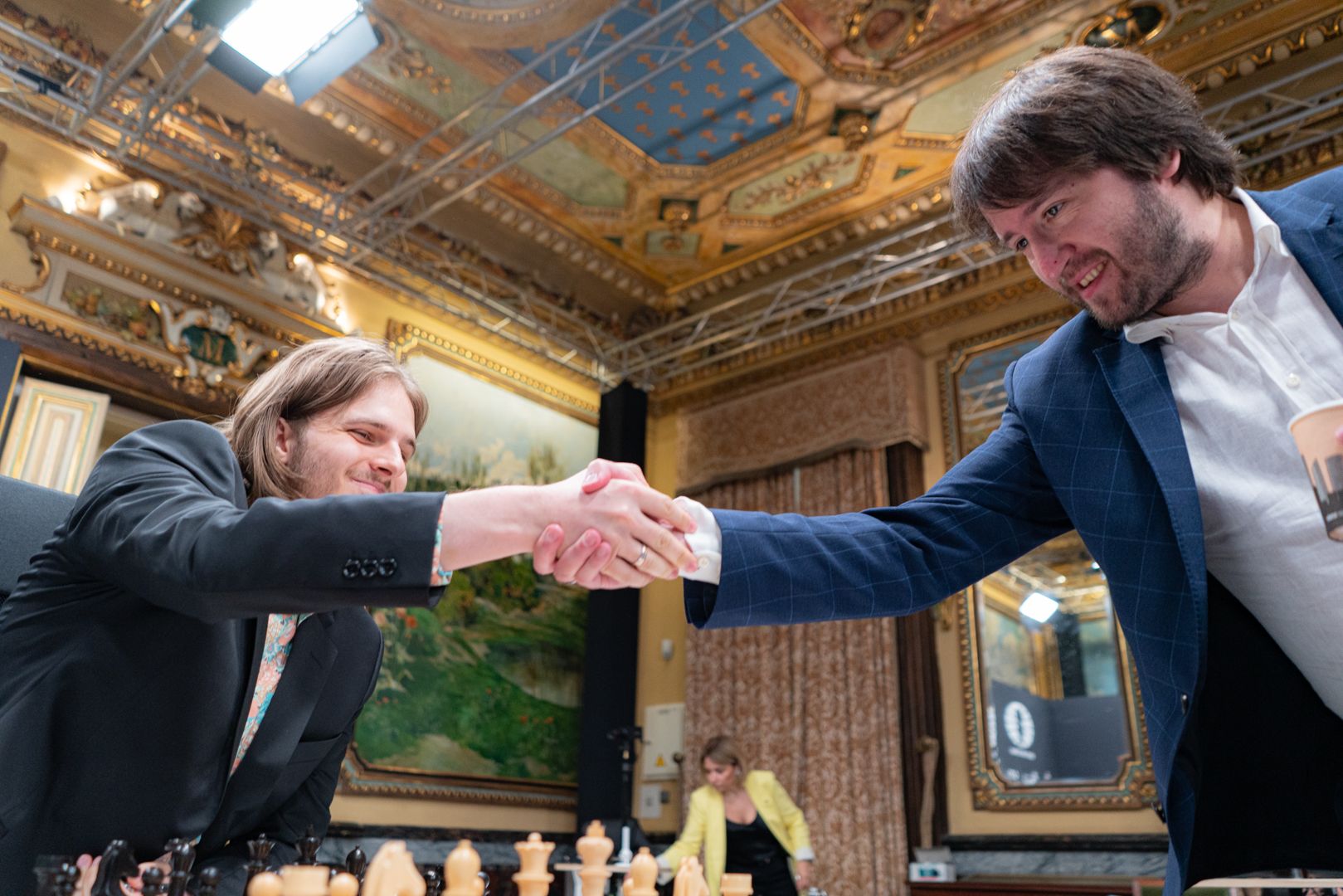
A few moves later, Black seemed to be the one with the slightly better chances, but he should have played the precise 36…Rf8 to control the f-file. With 45 minutes on the clock, Rapport lost his sense of danger as he went 36…Rg4?!, allowing Radjabov to claim that f-file. There, 37…c5 would still be enough to hold for Black, but taking on h4 was actually losing.
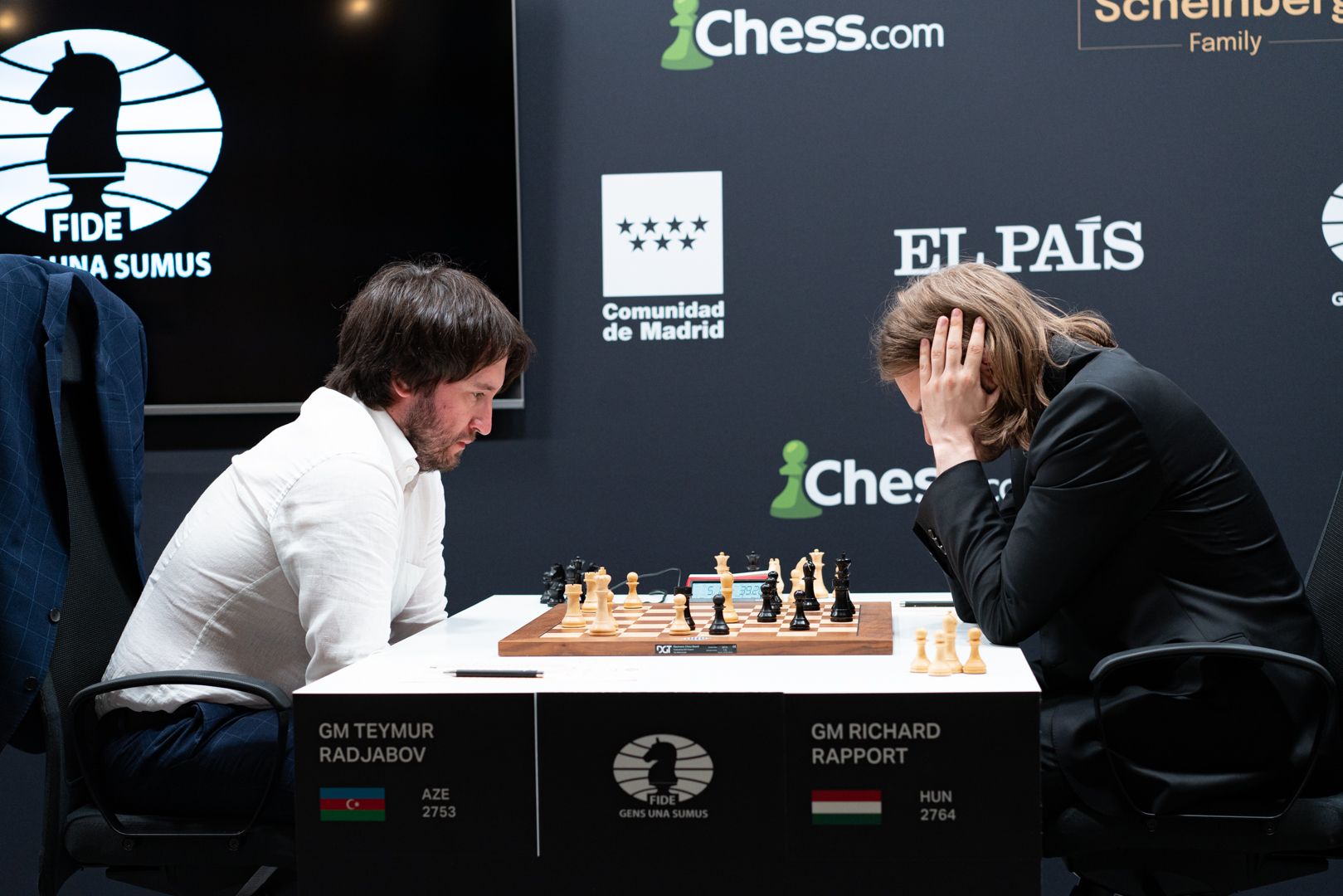
But then it was Radjabov’s turn to commit some bad clock handling. With five minutes left for just two moves, he thought for only 16 seconds on 39.Rf7, where 39.Bh2! would have won as that Rf7 move would still be crushing the next move, without losing your own piece. A classic saying in chess applies here: The threat was stronger than the execution.
It looked like Rapport immediately told him about it afterward, which was visible on camera. Radjabov looked confused but still let go a sigh of relief after what had been a thriller of a game.
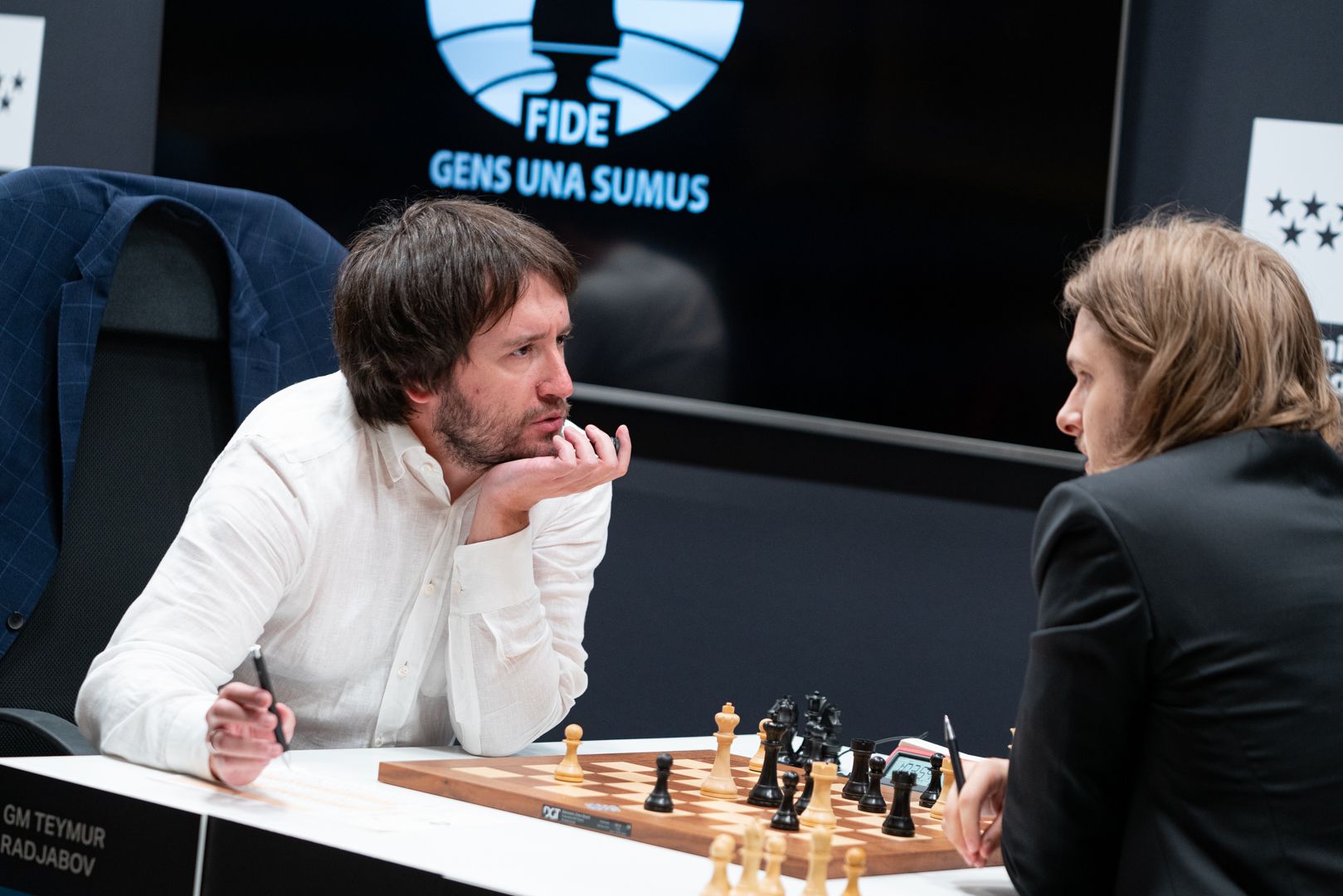
Nakamura-Ding ½-½
Nakamura had won their first-ever classical game at the 2016 Sinquefield Cup, but after that the players had drawn six times in a row. Today was the seventh, with excellent play from both sides. It was basically the only game today where the balance wasn’t really disturbed.
With 11.Bxc6 Nakamura deviated from Ding’s game in round two, where Duda played 11.Nf1. The Chinese player was the first to come up with a new move: 15…Qa7, where 15…Qb7 was Giri-Anton, Batumi 2019.
While Ding started taking his time on almost every move, Nakamura continued playing fast, until move 25.
“How much prep did Hikaru bring to the table here?” wondered Rensch in the Chess.com broadcast. Well, a lot.
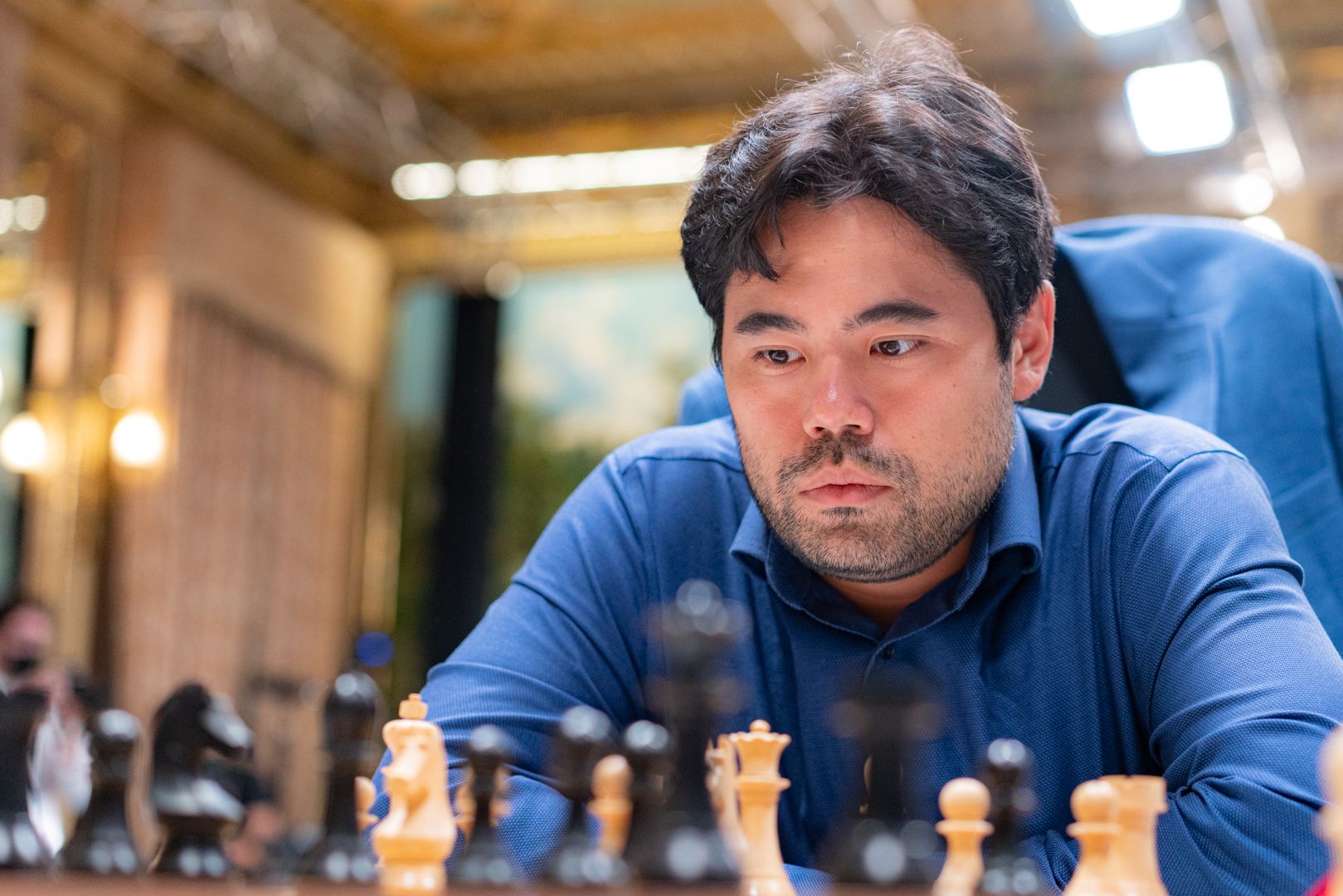
It should be noted that Nakamura, although in touch with some GMs as well, is still working with Kris Littlejohn in Madrid, a player with a fairly modest FIDE rating of 2156 but an expert in working on openings with engines. The Nakamura/Littlejohn tandem has been together for over a decade, and quite successfully.
According to the engine, he might not have achieved much on the board, but at least Nakamura got a big edge on the clock by move 25: one hour and 52 minutes (!) vs. 45 minutes.
This didn’t stop Ding from finding excellent moves such as 25…Bxb5 and 35…Qxb2, and he held everything together. The commentators agreed that it was a great game by Ding, who withstood pressure from the preparation brilliantly.
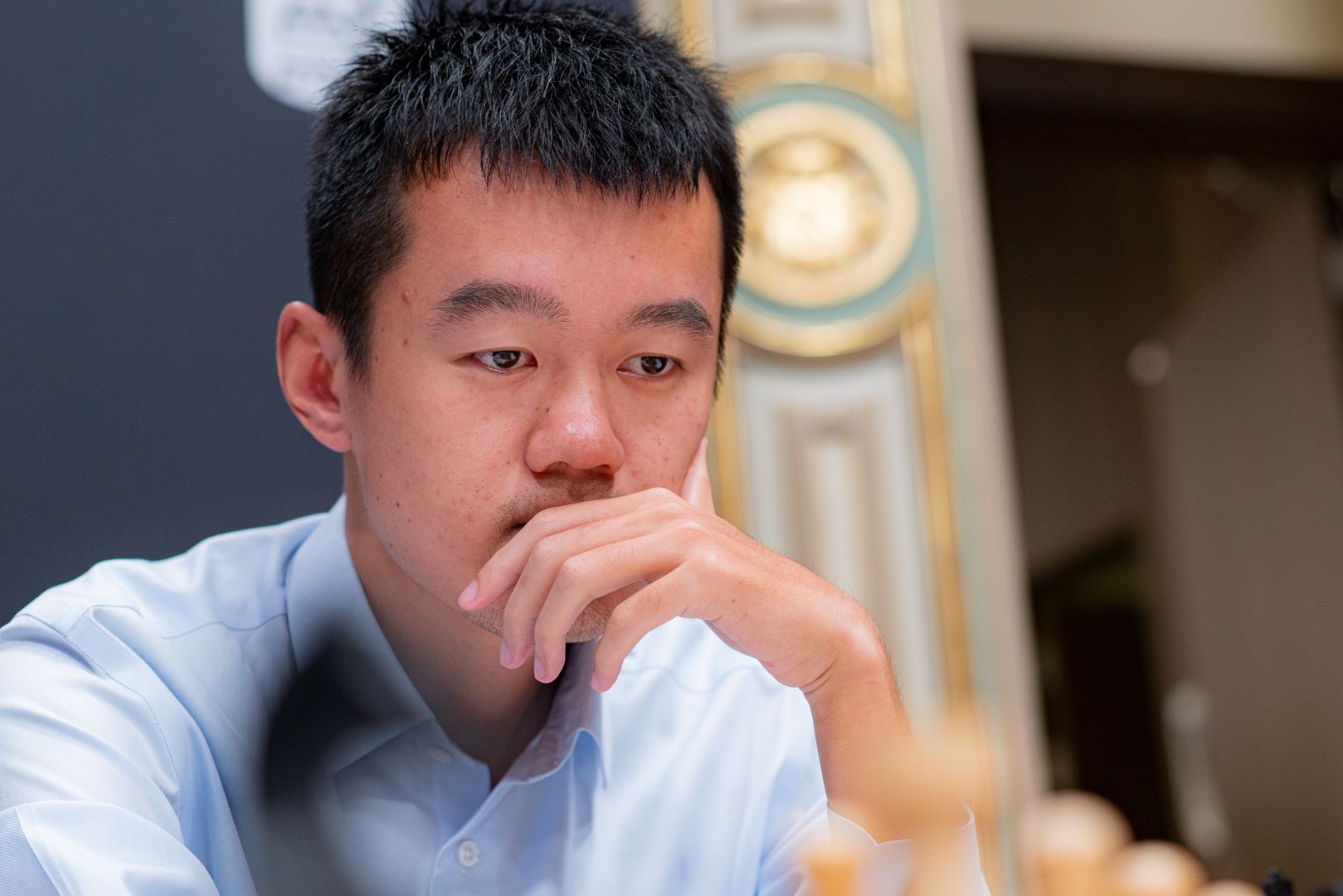
Nepomniachtchi-Duda 1-0
The mixture of a King’s Indian Attack and a Catalan in this game turned out to be quite theoretical. For instance, it has been played a lot by the German GM Rasmus Svane. Duda, however, must have been caught off-guard, because if we look at the last three years, Nepomniachtchi played 1.Nf3 in only eight percent of his white games (vs. 78 percent with 1.e4).
Despite having little experience in this line, the Russian grandmaster felt like a fish in the water as he played the novelty 13.Rc1, deviating from a game between two compatriots (13.Kh2 as in Svidler-Karjakin, Wijk aan Zee 2018).
Nepomniachtchi: “More or less for the first time in the tournament I got the position I prepared before the game, exactly the position. That was quite helpful.”
Like in Nakamura-Ding, initially, Nepomniachtchi was only building an advantage on the clock (90 minutes vs. 49 for Duda by move 16) but not so much on the board. However, that’s the engine’s perspective; it was already clear that the position was much harder to play for Black.
Duda apparently had to find the odd-looking 19…Bd4, but it wasn’t a surprise that he didn’t. The tiniest of inaccuracies from his opponent was all that Nepomniachtchi needed to create an overwhelming attack on the kingside, while Duda’s bishop was more or less trapped on h7.
As IM Almira Skripchenko said: “This is not the position you want to get against Ian. Once again he’s in his element.”
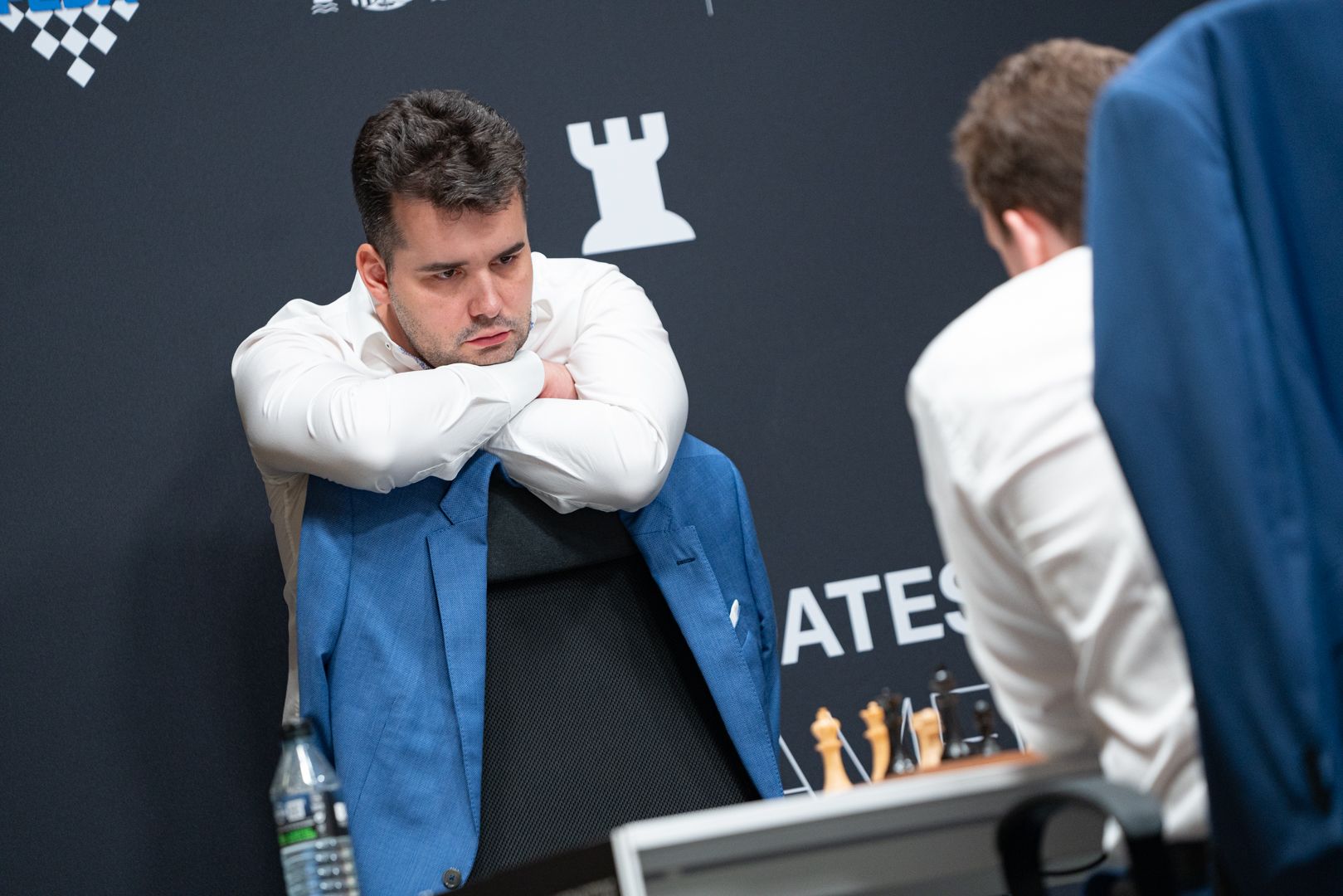
Duda had 31 minutes left for 15 moves, which added to what was already an uphill battle. However, as Nepomniachtchi missed a quicker win, only on move 26 did things really start to go downhill for the Polish player, who should have taken the pawn on h7.
If there was any doubt left that Nepomniachtchi would be winning his third game in the tournament, the Stockfish 15 NNUE cloud engine on our /events page was pretty clear at some point, showing a +100 (!) advantage and then a mate in 39 as it had reached depth 49.
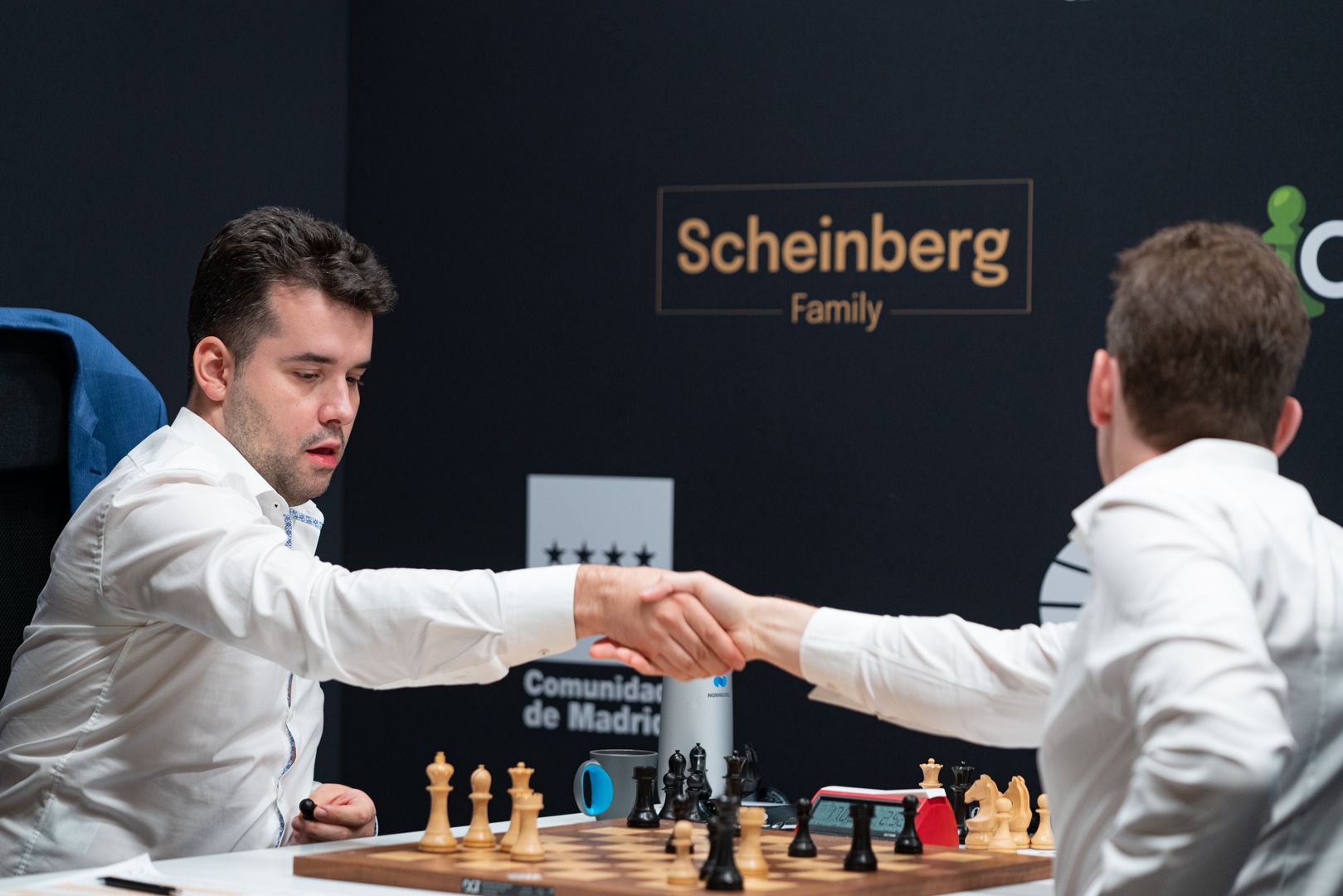
After resigning, Duda left the playing area fast. He needs to shrug off this game as quickly as possible but will have a rest day for that. Nepomniachtchi, on his turn, showed a face of pleasant surprise. Few, probably including himself, had counted on him being on +3 after six rounds.
Round six of the Candidates saw the two early leaders extend their lead. With Nepo and Caruana one and a half and one points ahead of the pack, respectively, it might be looking like a two-horse race at the moment. But, all it takes is one round where they both lose for the tournament to blow wide open again. I still would say they only have a 70 percent chance of victory between the two of them. Nepo played a fantastic game today.

Firouzja-Caruana 0-1
For the tournament intrigue, it is good that Nepomniachtchi isn’t completely running away with it yet. Caruana managed to stay half a point behind as he scored an important win with the black pieces, his third classical win vs. Firouzja besides four draws, with no losses yet.
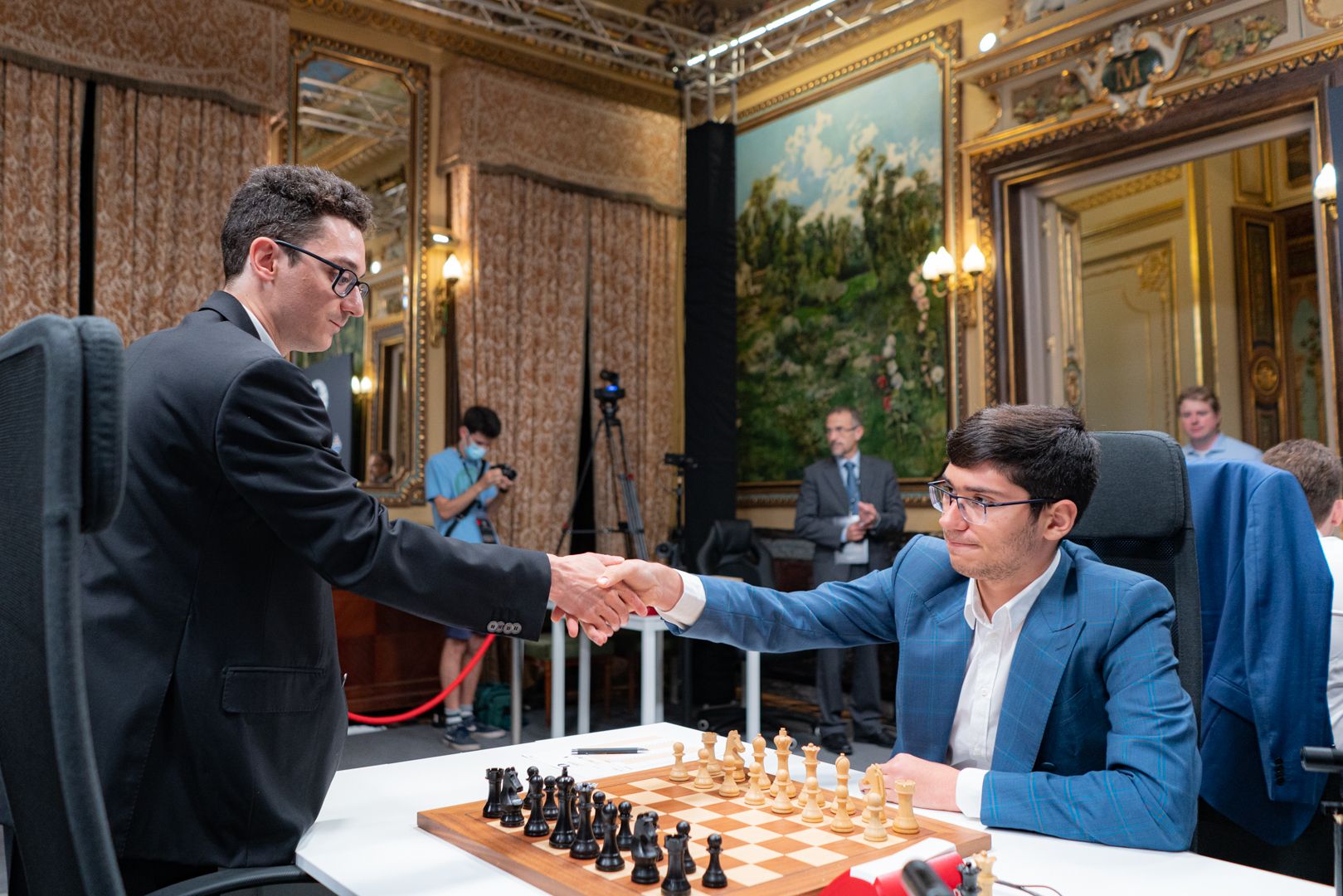
In a very standard position of the Closed Catalan, Firouzja surprised early with the move 6.Qd3. It is rare but not unknown and, in fact, a bit of a specialty of GM Boris Gelfand, the Israeli player who was the world championship challenger a decade ago.
Caruana said he was already out of book there: “I was pretty much on my own, but OK my moves came very naturally and logically.”
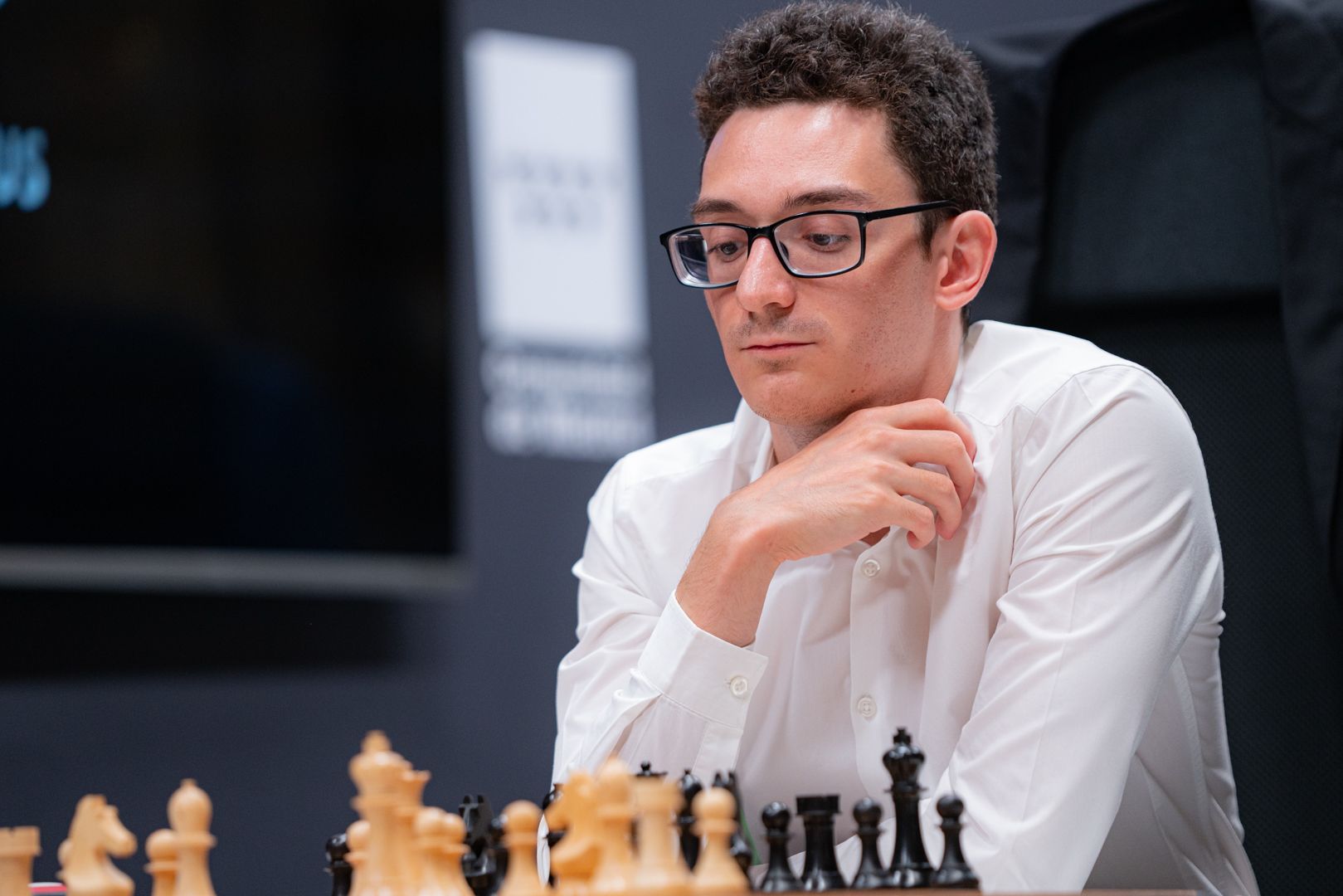
You could say that this game had two novelties. Caruana’s 9…Nxd4 hadn’t been played yet in that position, but the game then transposed into one of Gelfand’s games, when Firouzja deviated with 12.Qg4 (Gelfand played 12.Qd3).
In any case, Caruana responded well to Firouzja’s idea and more or less equalized out of the opening.
Clearly not too happy with the situation, Firouzja spent 39 minutes on his 13th move but went for a line that our commentators had disapproved of. Something was not right.
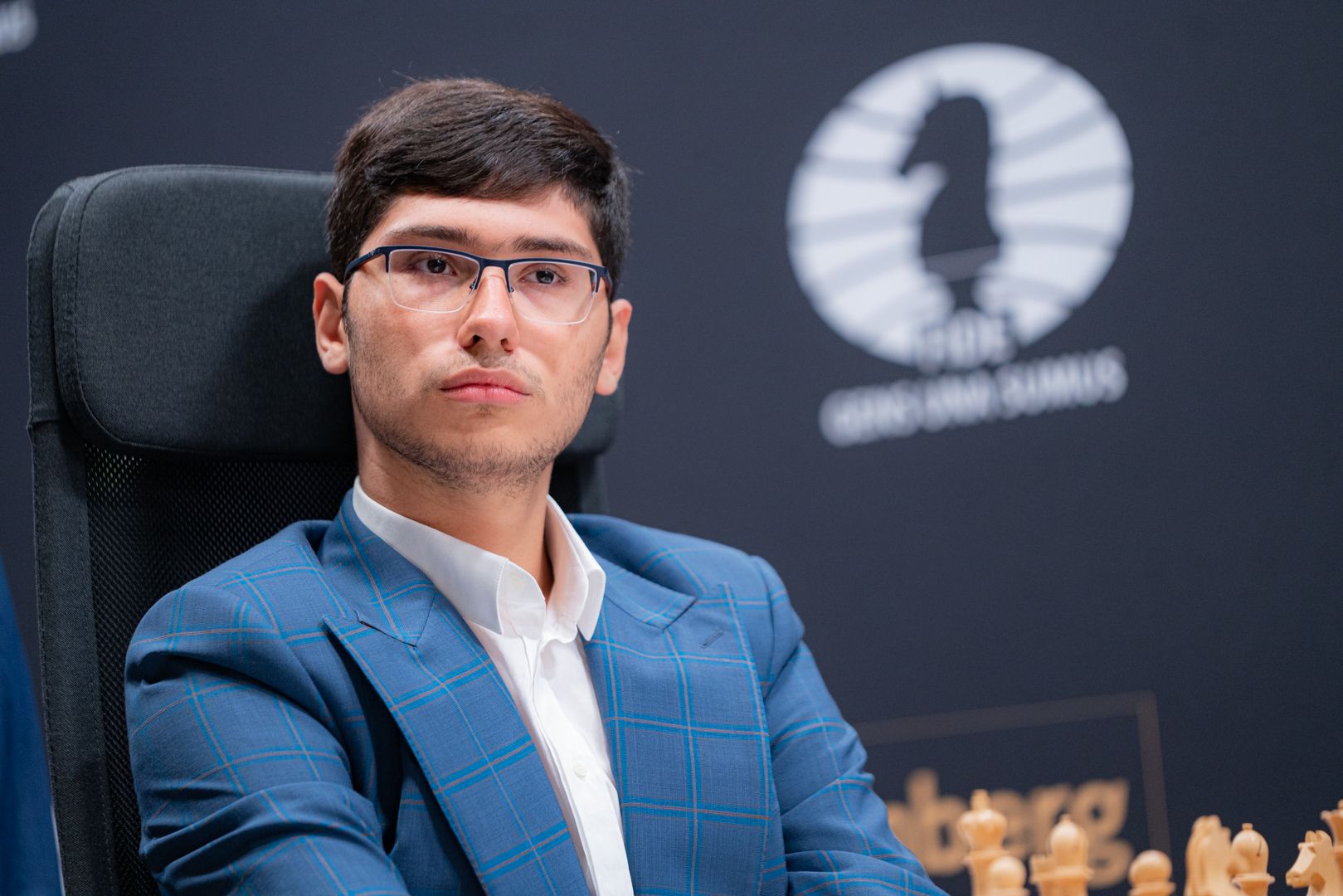
Already down to just 18 minutes on the clock (vs. almost an hour for Caruana) Firouzja decided to sacrifice an exchange, but that wasn’t working either.
“I don’t know if he sac’ed the exchange,” said Caruana. “I guess he didn’t miss 21…f5 because he reacted very quickly to it, but he allowed me this position which clearly should be better for Black.”
22.Bxf5 would have been better than taking with the pawn, even though it doesn’t actually win back an exchange due to 22…Qe8. In the game, Caruana soon won a pawn and was a full exchange up. He played accurately till the end to bring home the full point.
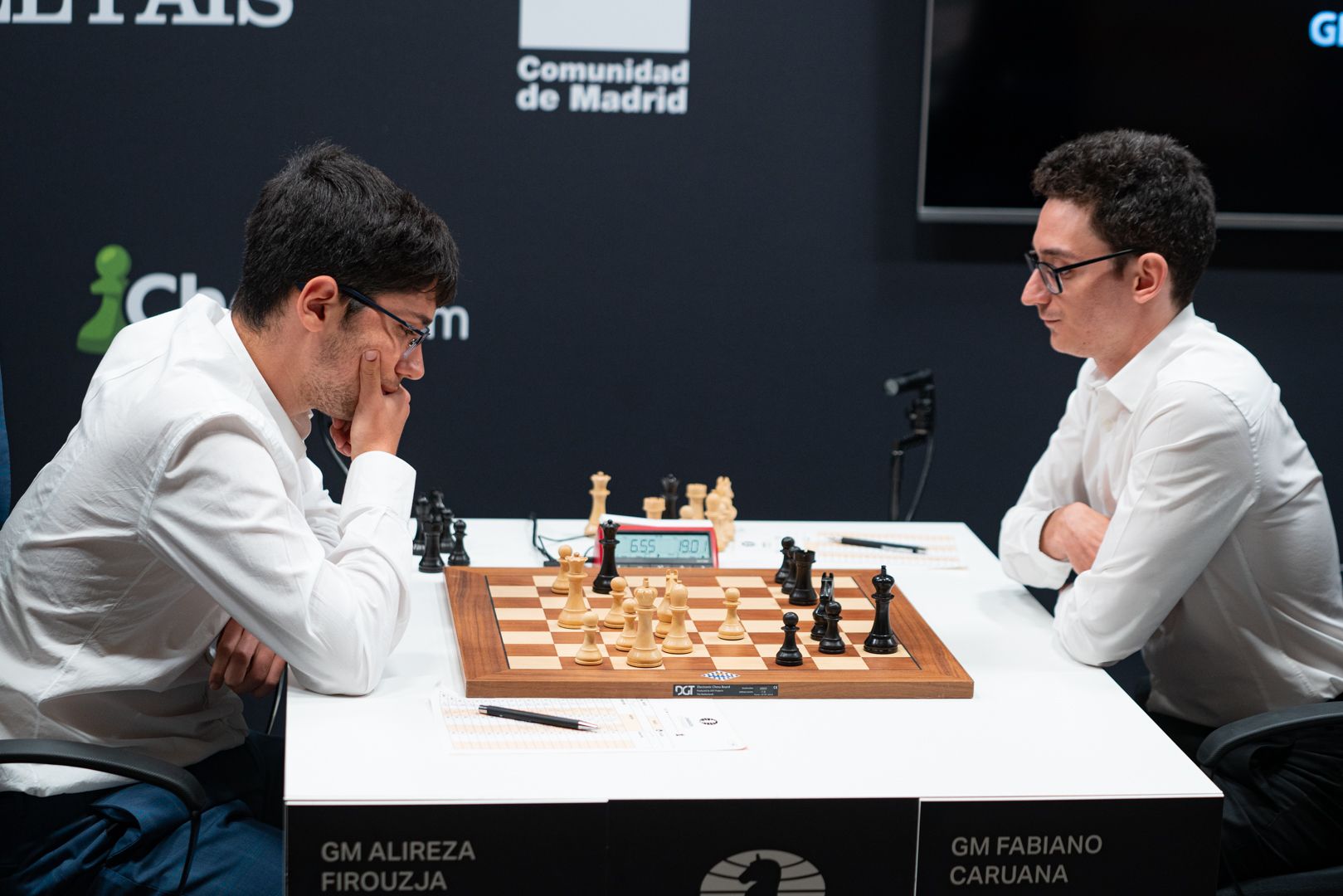
Like in the first round, Caruana and Nepomniachtchi won their games on the same day. If any of the other players want to catch them, they have to be fast.
At the bottom of the standings, we find Firouzja, the player Carlsen wanted to play the most in the next world championship. Almost symbolically, Caruana and Nepomniachtchi are also ahead of him again in the live ratings.

“Clearly he’s not playing at his usual level,” said Caruana about Firouzja’s disappointing start. “It might be the pressure of the first time, but we can only speculate.”
Round 6 Standings
